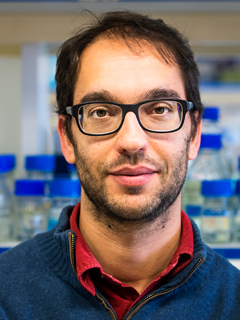
Instituto Gulbenkian de Ciência (FCG-IGC)
As part of the Calouste Gulbenkian Foundation, the Instituto Gulbenkian Ciência (FCG-IGC) is an institute dedicated to biological and biomedical research and innovative postgraduate training, placing science at the heart of society. 400 scientists, from 41 different nationalities, aim to understand the fundamental principles of Biology, in particular how the organism is formed and interacts with its environment, leading to novel approaches towards disease treatment and world sustainability.

Director: Mónica Bettencourt-Dias
Instituto Gulbenkian de Ciência, Rua da Quinta Grande, 6, 2780-156 Oeiras, Portugal
Labs and Units involved in the project
Host-microorganism interactions Lab
The Host-microorganism interactions research group is studying the interaction of the model organism Drosophila melanogaster with different microorganisms, in particular, intracellular ones. D. melanogaster has been successfully used as a model system to study innate immunity against many pathogens. Recently it has been shown that there are innate immunity pathways against viruses conserved between insects and mammals. The research group is investigating mechanisms of resistance to viruses in the fruit fly. Interestingly, they have found that the intracellular bacteria Wolbachia confer resistance to RNA viruses in D. melanogaster. They want to understand the molecular basis of this induced resistance. Finally, they are interested in the interplay between Drosophila and Wolbachia itself. These endosymbionts are one of the most widespread intracellular bacteria in the world but little is known, at the molecular level, on how the hosts control Wolbachia or Wolbachia manipulate the hosts.
Instituto Gulbenkian de Ciência. Rua da Quinta Grande, 6, 2780-156, Oeiras, Portugal.
+351 214 407 938
[email protected]
Bacterial signalling Lab
-
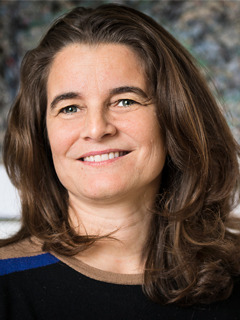
- Group Leader
Karina Xavier
In the Bacterial signalling laboratory, biochemical and genetic approaches are used to study the molecular mechanisms underlying quorum sensing, with an emphasis on systems promoting bacterial interspecies communication. This research includes an integrated study involving elucidation of the chemical molecules that are used as signals, the network components involved in detecting the signals and processing information inside individual cells, and finally characterization of the behaviour of the bacterial community in multi-species bacterial consortia. The ultimate research goal of the group is to understand how bacterial signalling shapes the multi-species bacterial microbiota communities that can be found in animals and plants and how these communities affect host physiology. In particular, the group is interested in understanding how bacterial signalling plays a role in assembling, maintenance and resilience of gut microbiota communities.
Instituto Gulbenkian de Ciência. Rua da Quinta Grande, 6, 2780-156, Oeiras, Portugal.
+351 214 464 655
[email protected]
Evolutionary Biology Lab
-
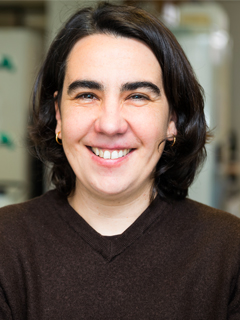
- Group Leader
Isabel Gordo
The area of research of the group led by Isabel Gordo is microbial evolution. The research group combine both theoretical and empirical work with the aim of a better understanding of the major forces that shape variation in bacterial populations. Present and future projects of the research team include:
- Study the process of adaptation in the context of ecosystems, specifically the mammalian intestine, in health and in disease conditions.
- Test theoretical models of adaptive evolution against genotypic and phenotypic data obtained in experimentally adapted bacterial populations.
- Determine the cost of antibiotic resistance and the level of epistatic interactions on fitness between resistant mutations and the underlying mechanisms causing such epistasis.
Instituto Gulbenkian de Ciência. Rua da Quinta Grande, 6, 2780-156, Oeiras, Portugal.
+351 214 407 915
[email protected]
Inflammation Lab
-
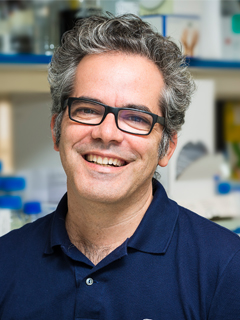
- Group Leader
Miguel Soares
Resistance to infection refers to the capacity of innate and adaptive components of the immune system to sense and target pathogenic microorganisms for containment, destruction or expulsion as the means to preserve organismal homeostasis and fitness. Multicellular organisms rely on yet another defense strategy against infection that preserves organismal homeostasis and fitness without exerting a direct negative impact on microorganisms. This defense strategy, referred to as disease tolerance limits the extent of metabolic dysfunction and damage imposed on parenchyma tissues, either directly by pathogenic microorganisms or indirectly by immune-driven resistance mechanisms.
The overall aim of the Inflammation Laboratory at Instituto Gulbenkian de Ciência is to identify and characterize tissue damage control mechanisms that contribute to establish disease tolerance to infection.
We use for this purpose mouse models of viral (e.g. Influenza, SARS-COV-2), bacteria (e.g. Salmonella, E. coli) and protozoan (Plasmodium spp.) infections to which we apply tissue specific, genetic gain- and loss-of-function approaches to identify and characterize organismal based mechanisms underlying the establishment of disease tolerance to infection. This strategy is supported by state-of-the-art flow cytometry, genomics (Bulk/Single cell RNAseq) and metabolomics as well as cell-based in biochemical approaches, supported by Instituto Gulbenkian de Ciência core facilities.
Instituto Gulbenkian de Ciência. Rua da Quinta Grande, 6, 2780-156, Oeiras, Portugal.
+351 214 464520
[email protected]
Innate Immunity and Inflammation Lab
-
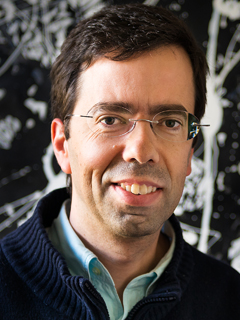
- Group Leader
Luís Moita
The Innate immunity and inflammation laboratory works on two different topics: innate immunity and inflammation.
The focus on innate immunity is centered on the study of antigen cross-presentation mechanisms and the immunobiology of dendritic cells. Effective immune responses against tumor antigens that are not endogenously expressed by dendritic cells (DCs) and against viruses that do not infect antigen presenting cells (APCs) require extracellular antigens to stimulate CD8+ T cells via the MHC I pathway through a process poorly characterized at the molecular level known as antigen cross-presentation. Researchers are using a series of systematic genetic approaches to identify the molecular machinery involved in antigen cross-presentation. In addition, we want to explore antigen cross-presentation as an early immune-regulatory checkpoint in the control of CD8+ T cell priming by dendritic cells, to find drugs that inhibit negative regulators of this process, as they are likely to improve the generation of effective T cells responses against tumors and are good candidates for novel adjuvant therapies for cancer treatment.
The focus on inflammation is centered on severe sepsis. Based on their recent discovery in mice showing that anthracycline drugs prevent organ failure without affecting the bacterial burden in a model of severe sepsis, we propose that strategies aimed at target organ protection have extraordinary potential for the treatment of sepsis and possibly for other inflammation-driven conditions. However, the mechanisms of organ protection and disease tolerance are either unknown or poorly characterized. The central goal of this research program is to identify and characterize novel cytoprotective mechanisms, with a focus on DNA damage response-dependent protection activated by anthracyclines as a window into stress-induced genetic programs leading to tissue protection.
Instituto Gulbenkian de Ciência. Rua da Quinta Grande, 6, 2780-156, Oeiras, Portugal.
+351 214 464 530
[email protected]
Microbial Genomics and Symbiosis Lab
-
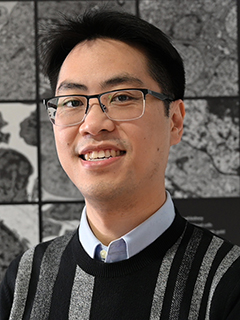
- Group Leader
Waldan Kwong
The group is broadly interested in the ecology, evolution, and function of microorganisms: How have they become so diverse and successful? What enables them to form complex communities with each other, and with multicellular eukaryotes? How can we benefit from their tremendous evolutionary innovations?
Currently, the Microbial Genomics and Symbiosis Lab is using social bees as a model system to investigate these questions. Social bees, including honey bees and bumble bees, possess a simple, yet unique, gut microbiota that has only recently been described, and is still poorly understood. We are working to understand the function and natural history of these microbes, through developing genetic tools, genomic datasets, and culture collections. As prolific pollinators of plants, bees are critical for sustaining both natural ecosystems and human agriculture. Understanding their relationship with their symbiotic gut microbes will help uncover ways to improve the health and aid conservation of these important insects.
The lab is also exploring other understudied microbiomes, such as the protist communities associated with corals and other marine systems, which we study using amplicon sequencing, metagenomics, and single-cell transcriptomics. By broadening our view of microbial symbioses, these systems will help us understand the diverse ways in which microorganisms have evolved to interact and thrive in their environments.
Instituto Gulbenkian de Ciência. Rua da Quinta Grande, 6, 2780-156, Oeiras, Portugal.
[email protected]
Genomics Unit
-
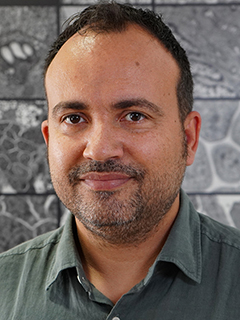
- Head
Ricardo Leite
The Genomics Unit at Instituto Gulbenkian de Ciência provides Next Generation Sequencing services using state-of-the-art Illumina sequencers.
Instituto Gulbenkian de Ciência. Rua da Quinta Grande, 6, 2780-156, Oeiras, Portugal.
+351 214 407 975
[email protected]
Bioinformatics Unit
-
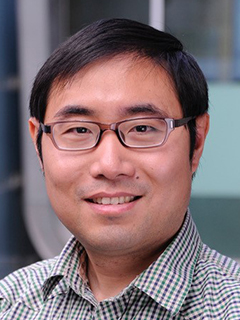
- Head
Jingtao Lilue
The Bioinformatics Facility at Instituto Gulbenkian de Ciência provides a broad range of support in data analysis and computational biology for all research groups in IGC. It has established a system to interact actively with internal and external laboratories, ranging from experimental design and data processing to statistics and data visualization. In addition, it has also initiated research projects on evolutionary biology of mammalian genomes and is developing a genome assembly algorithm for highly divergent regions of the mammalian genome. The Unit has a wide range of external collaborations with BioData.pt, ELIXIR European, ITQB, IMM, EMBL-EBI and multiple universities all over the world.
Instituto Gulbenkian de Ciência. Rua da Quinta Grande, 6, 2780-156, Oeiras, Portugal.
+351 214 407 965
[email protected]
Gulbenkian Collaborative Centre
-
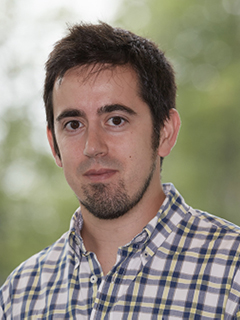
- Head
Luís Valente
The Collaborative Centre aims to promote the advancement of life sciences by enhancing interdisciplinary and collaborative research. Created in 2020 with the support from Oeiras City Council, the Centre has a fundamental role in establishing IGC, Oeiras and the greater Lisbon region at large, as a hub of Science and Innovation of international relevance. The Collaborative Centre, first of its kind in Europe, aims to promote the advancement of life sciences by enhancing interdisciplinary and collaborative research.
Instituto Gulbenkian de Ciência. Rua da Quinta Grande, 6, 2780-156, Oeiras, Portugal.
+351 214 407 944
[email protected]
Institutional Communication
-
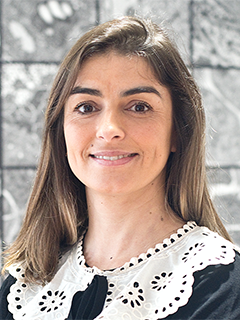
- Head
Ana Morais
The IGC Institutional Communication is responsible for defining and implementing the Institute’s communication and marketing strategy in close articulation with the Board and the Calouste Gulbenkian Foundation.
Instituto Gulbenkian de Ciência. Rua da Quinta Grande, 6, 2780-156, Oeiras, Portugal.
+351 214 407 913
[email protected]
